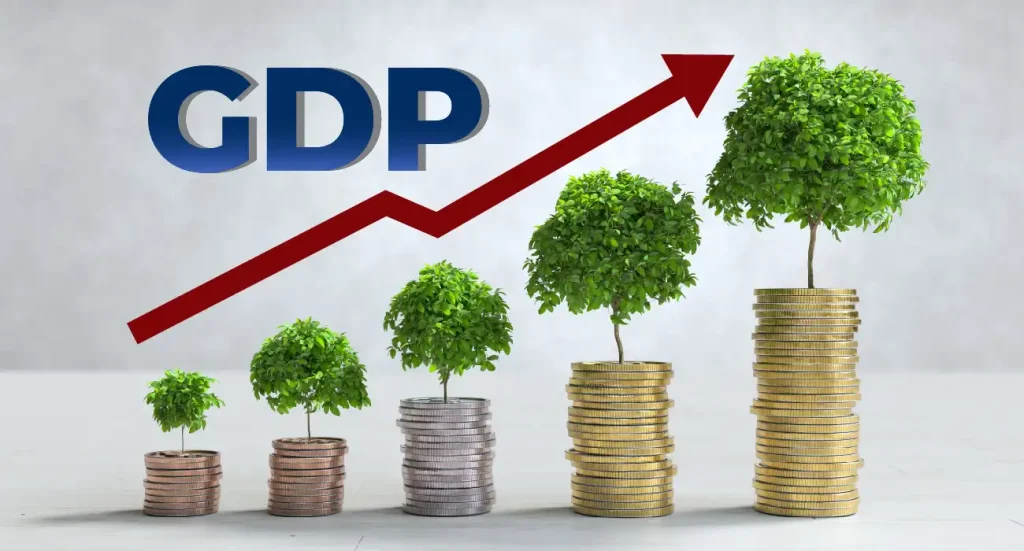Nigeria’s economy is showing signs of progress, growing by 3.13% year-on-year in the first quarter of 2025, according to the National Bureau of Statistics (NBS).
Announced on July 21, 2025, this growth follows a significant GDP rebasing that uses 2019 as the new base year, valuing the economy at 372.8 trillion naira ($243.7 billion).
While the growth is an improvement from the 2.27% recorded in Q1 2024, it fell short of analysts’ expectations of 4.9%. Here’s what you need to know about Nigeria’s economic performance.
A More Accurate Economic Picture
The NBS recently rebased Nigeria’s GDP, shifting the base year from 2010 to 2019 to better reflect the country’s current economic landscape.
This recalibration captures emerging sectors like e-commerce, telecommunications, and arts and culture, which have grown significantly since the last rebasing in 2014.
The result? A nominal GDP of N94.05 trillion in Q1 2025, up 18.3% from N79.51 trillion in Q1 2024, showcasing a more robust economic structure.
Services Sector Leads the Charge
The services sector was the star performer, growing by 4.33% and contributing 57.5% to the total GDP. Key drivers included:
-
Telecommunications: Surged with a 7.4% real growth, reflecting Nigeria’s digital transformation.
-
Finance and Insurance: Expanded by 15.03%, driven by financial institutions.
-
Real Estate and Trade: Grew by 4.61% and 1.78%, respectively, bolstering economic activity.
This sector’s dominance highlights Nigeria’s shift toward a service-driven economy, with digital services and creative industries playing a larger role.
Industry Sector Gains Momentum
The industry sector also showed strength, growing by 3.42% in Q1 2025, up from 2.35% in Q1 2024. Notable performers included:
-
Manufacturing: Achieved 1.69% growth, led by food, beverage, tobacco, and pharmaceuticals.
-
Construction: Recorded 6.21% growth, fueled by infrastructure projects.
-
Oil Sector: Grew modestly at 1.87%, with production rising to 1.62 million barrels per day, but its GDP share dropped to 3.97% from 4.02% in Q1 2024.
The non-oil sector contributed a whopping 96.03% to GDP, underlining efforts to diversify away from oil dependency.
Agriculture’s Slow Recovery
The agriculture sector struggled, managing only 0.07% growth, a rebound from a -1.79% contraction in Q1 2024.
Crop production, the largest sub-sector, grew by 3.71%, but challenges like security issues in farming regions and limited mechanization held back progress.
Agriculture’s GDP share fell to 19.4% from 20.86% in Q1 2024, signaling the need for targeted interventions.
What Does This Mean for Nigeria?
While the 3.13% growth is a step forward, it reflects a cautiously optimistic outlook amid challenges like inflation and currency depreciation.
The rebasing offers a clearer view of Nigeria’s evolving economy, but some, like finance expert Adebiyi Adesuyi, argue that presenting GDP in dollars would allow easier global comparisons.
The NBS emphasizes that the rebased data will improve policymaking by capturing informal and emerging sectors, such as modular refineries and digital finance, more accurately.
As Nigeria aims to reclaim its position as Africa’s largest economy, the services and industry sectors’ strong performance provides a foundation for growth, but agriculture’s sluggishness remains a concern.
Looking Ahead
With the services and industry sectors driving growth, Nigeria’s economy is on a positive trajectory, but structural challenges like inflation and agricultural underperformance need addressing.
As more details emerge from the NBS, policymakers and investors will look to leverage this data to foster sustainable development.
Africans Embrace Vegetarian Lifestyle for Health, Heritage, and Sustainability























